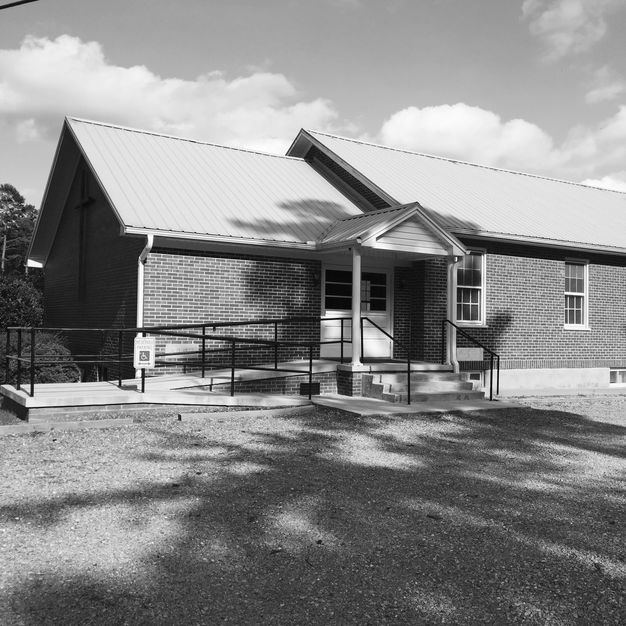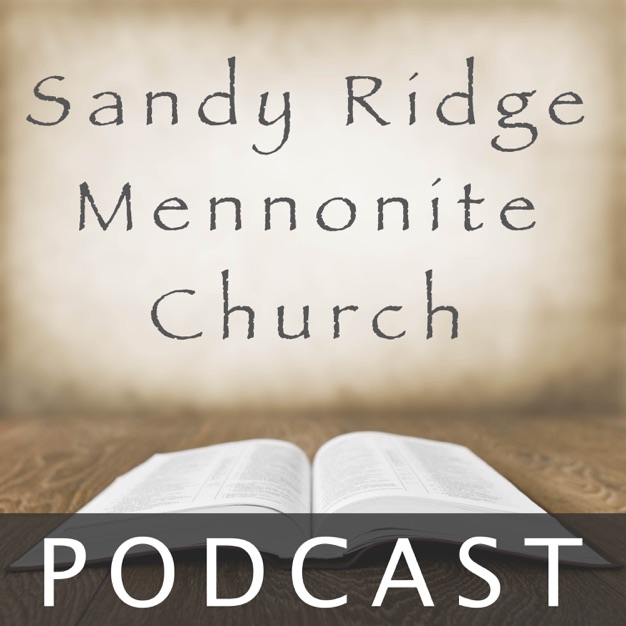
Bethel Mennonite Church
Bethel Mennonite Church
Bethel Mennonite Church is a small conservative congregation in south west Virginia. This podcast includes all of our weekly sermons.
- 31 minutes 37 secondsEncouragement for Moms
The post Encouragement for Moms appeared first on Bethel Mennonite Church - Gladys VA.
13 May 2024, 12:33 am - 50 minutes 57 secondsKnowing with the Mind and Heart
There is a difference between knowing and believing truth with the mind, and feeling and believing truth with the heart. People cannot be changed into the likeness of Christ, cannot grow and change, by believing falsehood. According to Scripture, Christ, Scripture, and the Holy Spirit are the sources of spiritual truth. You cannot interpret and apply Scripture in a way that violates the person and character of Christ as revealed in Scripture.
“It feels true to me” beliefs of the heart are learned amid life experiences. “It feels true to me beliefs” are any thought that completes the sentence “it feels true to me that”. Beliefs in our hearts will usually override the ideas and beliefs in our minds. An example of this happening is found in Ex. 2 when the Angel of the Lord appeared to Moses at the burning bush and tried to enlist Moses to lead the children of Israel out of Egypt. It felt true to Moses that he would get into trouble, that he was unqualified, that the people would not listen to him, and that he was not eloquent. Every excuse Moses gave was an “it feels true to me belief” produced by fear.
“It feels true to me” beliefs of the heart do not change by commanding people to stop feeling and believing the way they do. The factors that make it possible for “it feels true to me” beliefs to change are: talking and praying about the events in which the “it feels true to me” beliefs developed, knowing what is true according to Scripture, giving Christ permission to speak into one’s beliefs, giving oneself permission to let go of the “it feels true to me belief,” and by allowing the Holy Spirit and others to teach us something different than we already believe.
The post Knowing with the Mind and Heart appeared first on Bethel Mennonite Church - Gladys VA.
6 May 2024, 12:31 am - 46 minutes 47 secondsJacob Deceives Isaac
Genesis 27 begins with Isaac who is sure he is dying, although he did live for 50 more years. But he was feeble and blind. Isaac decided that now was the time to give his blessing to his favorite son Esau. He called Esau to him and gave him instructions to bring him savory food. But Rebekah overheard this and wanted Jacob to get the blessing. So Rebekah had a plan and Jacob and her carried it out. Jacob deceived and lied to his father. Rebekah deceived her husband.
Isaac and Rebekah each had a favorite son. There was dishonesty and a lack of communication between them. Isaac did not tell Rebekah his plan. Neither did Rebekah tell Isaac how she felt about his decision.
Communication is very important in a marriage. Communication between couples often involves husbands and wives telling each other what they already planned to do rather than having a discussion so they can plan together. Bad communication is a symptom of a bad relationship – it is not the cause of it. Both husbands and wives also need love and respect from each other. They need to be honest with each other about their concerns and feelings.
Some short term consequences of Jacob’s actions:
- His brother Esau hated him
- He had to flee his home
- He had literally nothing to take with him.
- He said goodbye to his mother and never saw her again. Rebekah had told him to go to her brother Laban and stay for a few days until Esau’s fury had lessened. But the few days turned into 20 years and she had died before he moved back to Canaan.
God was planning to bless Jacob and his descendants in a mighty way. Jacob’s deception did not change that fact. Esau’s blessing would have been the same even if he would have received it first. God looked at Jacob and saw the potential there.
God wants repentance for sin. God blessed Jacob in spite of his flaws not because of them. When God looks at us He sees what we can be, not what we are.
Satan loves to drive wedges in families. We need to focus on healing differences and communicating better. We can not stand on the premise that we are right and the people we live with are wrong. God is always faithful, every single time.The post Jacob Deceives Isaac appeared first on Bethel Mennonite Church - Gladys VA.
29 April 2024, 12:36 am - 39 minutes 3 secondsA Deeper Communion
A healthy church is made up of people who are in close communion with God and each other.
- I John 1 – Jesus is our basis for this communion.
- Communion with God enables us to walk in the light and have fellowship with each other.
- In our communion with God we receive incredible resources not available to those who are in darkness; but we still need fellowship with each other (church).
- I Corinthians 10 – the Corinthians’ lack of self-restraint was putting their communion with God at risk.
- II Corinthians 6 – God wants to fellowship with us, but requires us to leave darkness behind. Paul urges the Corinthians to “cleanse” themselves and “bring holiness to completion” (7:1)
- Our communion with God is not something we can afford to neglect or be careless about. We do not need to get everything right, but we must watch out for harmful patterns that can shift our affections.
- The song “Open the Wells” is the prayer of someone who is “thirsting for more and deeper communion.” How does someone like this live his life? Such a person would guard against things that can damage this communion, involve himself in things that can feed this thirst, and live out his love for God through faithful obedience.
The post A Deeper Communion appeared first on Bethel Mennonite Church - Gladys VA.
14 April 2024, 8:41 pm - 44 minutes 39 secondsThe Joyful Penitent
Sin blocks/hinders fellowship with God. Repentance clears sin away, opening the way and restoring fellowship with God and joy. Walking in the light of fellowship with Christ is the life of a penitent. In the Light they see their sins. They’re sensitive to sin and repent of it to keep fellowship flourishing. (Acts 3:19; 1 John 1:4-9).
What makes up repentance?
- Conviction. The case and realization we have sinned. Reprobates and those with seared consciences may not feel conviction. Not everyone who’s convicted repents. But all penitents feel conviction.
- Contrition. The remorse and grief that comes with conviction, knowing we’ve grieved the Spirit, and seeing fellowship affected. Paul wrote of godly sorrow that leads to repentance and worldly sorrow that doesn’t. (2 Cor 7:9-10).
- Confession. Agreeing with God regarding our sin and sinfulness. David’s confession after his sin against Uriah, Bathsheba, and God is a classic example. When confronted by the prophet, he said, “I am the man.” No excuses. Psalm 51 is his moving confession, lament, and prayer.
- Change of heart. A change of mind and purpose from sin and selfishness to God. After Paul was helped to his feet after his experience on his way to Damascus, he was still headed toward Damascus, but his heart had done a 180-degree turn.
- Forsaking old. Leaving sin and carnality. What does that look like?
- Forsaking means following through. Sometimes people delay and put off taking the practical steps. They’ve decided, but haven’t followed through. They may feel relief, elation, and even rest, but they’re not further along. The longer the delay, the more likely their new resolve weakens and withers. (Parable of the soils Matthew 13).
- Forsaking means leaving sin. A break with wrong thoughts, attitudes, behavior.
- Forsaking means not looking back. Israel murmured against Moses and remembered Egypt. (Numbers 11; Hebrews 11:13-16). Those who look longingly back increase their risk of returning to the old life.
- Forsaking means hating sin. 1 John 1.15; Psalm 97.10; Proverbs 8.13. Not an on/off switch for that. Anything that improves our relationship with God and coming to see sin from God’s point of view will help make sin less appealing. It’s possible to feel the appeal and temptation of sin while despising it (Romans 7).
- Forsaking sin means making no provision for the flesh. Don’t make it easy to sin. Christians pray “lead us not into temptation” but sometimes carelessly walk in the counsel of the ungodly, stand with sinners, and sit where the scornful gather. They hear the thoughts and stories of the scornful and watch their activities. Those influences are not edifying and weaken the righteous.
- Embracing the new. “Looking unto Jesus, the author and finisher of our faith.” Hebrews 12.1-3 is repentance in a nutshell. A Christian doesn’t stop sinful behavior and attitudes through brute force and will power without God’s grace for victory. We need the “Holy Spirit and fire” John the Baptist said Jesus would bring. When we experience John 15 and Philippians 1.6 and 2.13, we’re walking in the Light. It’s putting on the new man (Ephesians 4:14 and others).
We have this treasure in earthen vessels (2 Cor 4.7). As long as we live on earth, we’ll be subject to some degree of the pull of temptation. But how well we forsake the old and embrace the new life in Jesus will affect how strong temptations are. The song says, “Turn your eyes upon Jesus, look full in His wonderful face, and the things of earth will grow strangely dim . . .” Salvation puts us in a right standing with God. Then begins the work of sanctification, God changing us into people who live righteously, reflecting the character of Christ. The penitent’s journey isn’t always steadily upward. When they stumble and fall, which they surely do (1 John 1.6), they repent, and by God’s mercy and grace, they rise to their feet and continue on the journey with the joy of salvation and fellowship with God.
The post The Joyful Penitent appeared first on Bethel Mennonite Church - Gladys VA.
7 April 2024, 1:12 pm - 47 minutes 55 secondsOvercoming Habits of Sin
Scripture commands believers to turn from sin to righteousness many times. Examples of this are found in Romans 6, Eph. 4:17-32, and Phil. 2:12-13. Romans teaches us that in principle, in God’s reality, a person’s habits of sin die when they are co-crucified with Christ. If a person wants to stop sinning, it is helpful to know and believe that the person you were “in Adam” has died, so you are no longer a slave to sin.
Ephesian 4:23-24 says to “be renewed in the spirit of the mind,” which sounds like the direction or set of the mind needs to change in order to stop sinning. We cannot stop our habits of sin unless we know that who we were “in Adam” prior to conversion, and the “body of sin” (bodily habits of sin) that were part of our life before conversion, have died or been rendered inoperative in our death and resurrection with Christ. In addition, a believer cannot forsake sinful habits without being renewed in the spirit of the mind and being delivered from their blindness of heart.
Philippians 2:12-13 says we should “work out” our “salvation with fear and trembling” because “it is God who works in you both to will and to do for His good pleasure.” Our salvation is “worked out” or brought to completion as we have a healthy respect for God’s commands and cooperate with God as He works in us the willing and doing of His will.
The Bible condemns sinful behavior and commands righteous behavior, but people’s sinful behavior is always produced by deeper sinful attitudes and feelings and thoughts. Sinful acts must be viewed as “surface issues” or fruit that is rooted in deeper sins. It is almost impossible for people to experience long-term deliverance from sinful behavior by treating the behavior (expressions of anger, for example) as the most important or basic sin, or by trying to instruct a person into not committing acts of sin. If this is all you focus on, people will almost always continue in their sin.
The post Overcoming Habits of Sin appeared first on Bethel Mennonite Church - Gladys VA.
24 March 2024, 9:05 pm - 49 minutes 32 secondsNo Other Foundation
Many of us have often wished we could read a letter from Paul “to the Church at Gladys.” Although that is, unfortunately, impossible, we can learn from the circumstances, struggles, and successes of the Corinthian church and apply it to our own situation here. 1 Corinthians begins with Paul praising God for the many rich blessings the Corinthians have in Christ and serves as a reminder to us that there is always something to be grateful for in the lives of fellow believers.
Paul quickly identifies the chief problem of the Corinthian church: they lack unity. There are a number of reasons given throughout the first four chapters for the church’s division: loyalty to certain teachers over others (1 Cor. 1:10-17), a reliance on man’s wisdom rather than on God’s wisdom (1 Cor. 1:18-31, 2:1-5), their carnality and immaturity (1 Cor. 3:1-4), an emphasis on the work of some men over others apart from the work of God (1 Cor. 5-17), and their boasting of their gifts given to them by God (1 Cor. 3:18-23).
Fortunately, we can learn from Paul’s example. Paul was compelled by the Spirit to tell the Jews that Jesus is the Christ; he was led by the Spirit and not selfish ambition (Acts 18:5). Additionally, throughout his letter to the Corinthians there are several things Paul does to encourage unity among fellow believers: he did not keep score (1 Cor. 1:16), he did not use excellence of speech, persuasive words, or human wisdom in his preaching (1 Cor. 2:1,4), he acknowledged the contribution of others like Apollos (1 Cor. 3:6), he recognized his work in relation to the work of God (1 Cor. 3:7), he recognized Christ as the foundation on which he built (1 Cor. 3:11), he looked to the Lord for his praise rather than to men (1 Cor. 4:4), he was a servant, willing to be foolish, weak, dishonored, hungry, thirsty, poorly clothed, beaten, homeless, laboring. Reviled, persecuted, and defamed for the sake of Christ and the Gospel (1 Cor. 4: 1, 10-13), and he showed no jealousy or envy, but strongly urged Apollos to visit the Corinthians (1 Cor. 16:12).
There are things that we can do to help foster unity in our local church. We should start by examining our relationship with God – Are we abiding in Christ, yielding to the Holy Spirit? What attitudes are evident in my life? Is it envy, jealousy, and self-seeking? Or, am I displaying the wisdom of above that is pure, peaceable, willing to yield, without partiality or hypocrisy? If it is only our common heritage, hobbies, politics, or occupations that unite us with others, our church will not weather much adversity. An abiding, growing relationship with Christ is what will connect us to other believers on a deep, spiritual level.
We can also examine our relationships in the home – Do I love my wife and family as I should? Do I love my siblings as I should? Is there unity in my home? Next, we can examine our relationships within the church – Can I appreciate the successful work of others? Do I often compare myself with others? Do I care more about how I look in my church than how Jesus looks in my church? Do I care more about a building and numbers than about the spiritual condition of my brother or sister? Do I care more about doing church my way than about my brother or sister? Finally, we should examine how we relate to Christians outside of our local congregation – Can I be firm in my convictions, committed to my brotherhood, and yet humble enough to admit that I can learn from others? Can I acknowledge the contribution and success of those whose methods may be different from my own?
The results of church unity identify us as Jesus’ disciples and serve as a witness that Jesus’ was sent by God (John 13:35, John 17:20-21). The church is a welcoming, beautiful temple that radiates the glory of God when we are built on the Lord Jesus Christ, recognize God’s indispensable work, are united in the spirit, and when we love each other enough to serve one another.
The post No Other Foundation appeared first on Bethel Mennonite Church - Gladys VA.
10 March 2024, 9:07 pm - 47 minutes 6 secondsHow Does God Use Adversity?
When we face difficulty, we ask why God allows misfortune in my life. A better question would be, how does God want to use adversity in my life? What would He like to accomplish?
Misfortune is the wrong word to use because it is too early to tell. Is God present and active in our difficulties or is he the cause of them? Heb. 11:7; I Pet. 1:7. We tend to think of God in ways: He has a perfect will and He has a permissive will. When we look at life by faith, we see that God is in it, that God has good intentions, that God is refining us, that God’s goal is our sanctification.
How does God refine us? Not just by sermons but also by the people around us and the circumstances of our lives.
John 15:1ff; Heb. 12: We are made perfect through suffering if we yield ourselves and the difficult thing to God. That is when he blesses us. Joseph had favor everywhere he went. Job suffered great losses and his visitors caused him more difficulty than his original losses. Don’t resist what God wants to accomplish. God is not punishing for wrong; He is seeking to grow us. We do not need to prove ourselves. We don’t necessarily cause our difficulties, but we do choose how we respond.
The post How Does God Use Adversity? appeared first on Bethel Mennonite Church - Gladys VA.
4 March 2024, 1:43 am - 1 hour 5 minutesThe Ultimate Witness to the World
The ultimate witness to the world is the love believers have for one another in the life of the church. How do we maintain harmony? Most churches do not have brotherhood. They do not pursue brotherhood. Instead, they have either individualism (everyone does what works for them) or they have family first (whatever works for my family matters more than what works for the group). Brotherhood only works when the church is a team. The church must be a team. The effectiveness of the church depends on the spirit with which its work is done. In Acts 6, the apostles asked the body to contribute to the solution. When there is an offense or when no trust between leaders and the body, no life flows. In brotherhood, we both speak and listen. Lack of listening and lack of agreement is a lack of love problem. Nothing is more powerful than love and unity. Too often in church life, people are trying to figure out who is on their side. This is not love and this is not right.
The post The Ultimate Witness to the World appeared first on Bethel Mennonite Church - Gladys VA.
4 March 2024, 1:43 am - 53 minutes 16 secondsWith Confidence I Now Draw Nigh
God wants us to know Him as He truly is, and Jesus is the accurate revelation of God. Believers are the last revelation of God.
If you would experience a great disappointment, would it be distressing to you to know that God knows? I ask this question because there is a strong emphasis among us: you have to strive perfectly to enter in; you have to obey perfectly to enter in. But there is also the truth that God is a merciful God. How does a person’s pursuit of God and God’s mercy intersect? The question is this: Do we do the sanctifying or does God do it? The answer is that Christ is the answer to our every failure and lack and need. Christ is our life. Our confidence is in God, not in ourselves.
We are always drawing near, but at the same time we are always present with Christ, always there. The human heart thinks we have to fix ourselves before we come to God, but this is impossible. God is where I am and can do for me what I cannot do for myself.
What hinders us from drawing near? For some, it is because they have failed and can’t tell God, so they have to suppress it. We know this leads to depression and a bad end. For some, it is the result of their parents and pastors demanding perfection of them before they can belong. The freedom we have to come to our parents and pastors as we are determines how much freedom we have to come to God as we are.
We cannot improve ourselves before we come to God; we come to God to be improved. God receives sincere seekers where they are and then acts like He can’t get His work done without them.
The post With Confidence I Now Draw Nigh appeared first on Bethel Mennonite Church - Gladys VA.
3 March 2024, 1:43 am - 51 minutes 27 secondsAnother Trip to the Altar
The post Another Trip to the Altar appeared first on Bethel Mennonite Church - Gladys VA.
2 March 2024, 1:43 am - More Episodes? Get the App
- https://bmcgladys.com
- English
Your feedback is valuable to us. Should you encounter any bugs, glitches, lack of functionality or other problems, please email us on [email protected] or join Moon.FM Telegram Group where you can talk directly to the dev team who are happy to answer any queries.
 Ebenezer Mennonite Church
Ebenezer Mennonite Church
 Weavertown Amish Mennonite Church: Sermons
Weavertown Amish Mennonite Church: Sermons
 Plainview Mennonite Church
Plainview Mennonite Church
 Sandy Ridge Mennonite Church Podcast
Sandy Ridge Mennonite Church Podcast
 Germantown Mennonite Church Podcast
Germantown Mennonite Church Podcast